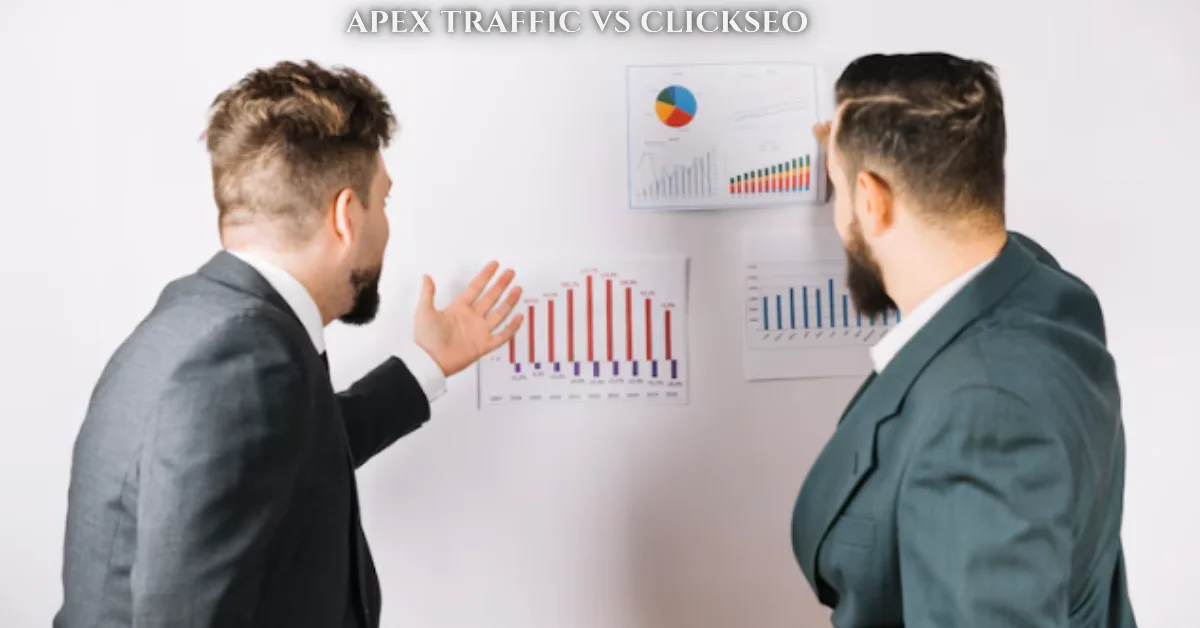SEO
How Small Sellers Can Dominate Amazon Marketing

Amazon has revolutionized the e-commerce industry, so it should come as no surprise that millions of sellers, both large and small, are vying for a piece of the action. While large corporations have the resources to invest heavily in marketing campaigns, small sellers often find themselves at a disadvantage. However, the playing field is far from uneven, and with the right strategies, small sellers can not only compete but dominate Amazon’s marketing.
The Beauty of the Amazon Marketplace
What makes Amazon such an attractive platform for small sellers is its sheer reach and customer base, amplified by the strategic implementation of Amazon PPC Agency services. With millions of active users and a reputation for excellent customer service, Amazon provides a vast audience that would be difficult, if not impossible, to achieve through independent online storefronts.
For small businesses, this level of exposure along with the agency’s managed targeted advertising campaigns is a game-changer. It allows them to tap into a global market and reach customers they may never have been able to connect with otherwise, ensuring their products are prominently featured to the right audience at the right time.
Power of Reviews
One of the most powerful tools in a small seller’s arsenal is the ability to cultivate positive reviews. In the world of e-commerce, reviews are like word-of-mouth recommendations, and their influence cannot be overstated. Customers rely heavily on reviews to make informed purchasing decisions, and a product with a high rating and glowing testimonials is far more likely to catch their eye.
Small sellers can capitalize on this by going above and beyond to provide exceptional customer service. Responding promptly to inquiries, addressing concerns, and ensuring a seamless shopping experience can go a long way in encouraging customers to leave positive reviews. Additionally, small sellers can incentivize reviews by offering discounts or free samples in exchange for honest feedback.
Mastering the Art of Optimization
In the crowded Amazon marketplace, standing out from the competition is crucial. This is where the art of optimization comes into play. Small sellers can leverage Amazon’s algorithms by carefully crafting their product listings with relevant keywords, compelling descriptions, and high-quality images.
While large corporations may have teams dedicated to search engine optimization (SEO), small sellers can level the playing field by investing time and effort into researching the most effective keywords for their products. By incorporating these keywords strategically throughout their listings, they can increase their visibility and improve their chances of appearing in relevant search results.
Embracing the Power of Advertising
While organic search visibility is invaluable, small sellers should also consider leveraging Amazon’s advertising platforms. Amazon offers a range of advertising options, including sponsored product ads, sponsored brand ads, and Amazon DSP (Demand Side Platform) for display advertising.
By investing in targeted advertising campaigns, small sellers can ensure their products are prominently displayed to highly relevant audiences. This not only increases their chances of making sales but also helps build brand awareness and customer loyalty over time.
Cultivating a Loyal Customer Base
One of the most significant advantages small sellers have is the ability to forge personal connections with their customers. By offering exceptional customer service, engaging with their audience through social media, and providing valuable content (such as product guides or tutorials), small sellers can cultivate a loyal customer base.
Loyal customers not only provide repeat business but also serve as powerful advocates, spreading positive word-of-mouth recommendations and leaving glowing reviews. This virtuous cycle can propel small sellers to new heights, allowing them to compete effectively with larger corporations.
The Rise of Influencer Marketing
Influencer marketing has emerged as a potent force in the world of e-commerce. Small sellers can leverage the power of influencers by partnering with those who align with their brand values and target audience.
Influencers with engaged followings can help small sellers reach new customers, build brand awareness, and drive sales. By creating authentic collaborations and providing influencers with high-quality products, small sellers can tap into a powerful marketing channel that resonates with modern consumers.
Embracing Innovation and Adaptability
The e-commerce landscape is constantly evolving, with new trends and technologies emerging at a rapid pace. Small sellers who embrace innovation and adaptability will be better positioned to stay ahead of the curve and capitalize on new opportunities.
Whether it’s exploring new marketing channels, such as live streaming or augmented reality, or embracing emerging technologies like voice commerce, small sellers who are willing to experiment and evolve will have a distinct advantage over those who remain stagnant.
The Path to Dominance
While the road to success on Amazon may seem daunting for small sellers, the opportunities for growth and dominance are abundant. By leveraging the power of reviews, mastering optimization techniques, embracing advertising, cultivating a loyal customer base, engaging with influencers, and remaining innovative and adaptable, small sellers can not only compete but thrive in the competitive world of Amazon marketing.
With determination, strategic thinking, and a commitment to excellence, small sellers can carve out their own niche and establish themselves as leaders in their respective markets, with the invaluable support of top-notch Amazon agencies like Amazowl.
The key is to never underestimate the power of a well-executed marketing strategy and the ability to connect with customers on a personal level. By partnering with a reputable Amazon agency such as Amazowl, sellers can leverage expert guidance and innovative solutions to optimize their presence on the platform, amplify their reach, and drive sustainable growth.
BUSINESS
What Is an Ad Exchange? A Comprehensive Explanation

Staying ahead of the competition in today’s highly competitive digital landscape means using the latest tools and strategies to ensure your content reaches the right customers at the perfect time. One of the most valuable tools in your online advertising arsenal is an ad exchange.
That, then, begs the question: What is an ad exchange? At first glance, it might sound like Wall Street jargon. But in reality, it’s one of the pillars of online advertising. Here’s what you need to know about ad exchanges and how to use one to achieve your brand goals.
What Is an Ad Exchange?
Imagine a bustling grocery store, but instead of things like fruits and veggies, the shelves are lined with ad spaces. That’s the quick and simple idea behind an ad exchange.
More specifically, an ad exchange is a digital marketplace in which publishers, website owners, and other entities with digital inventories list and purchase available ad space. They can set minimum pricing, organize their “stock,” and (most importantly) connect with brands that want to buy their virtual inventory. Instead of haggling over prices at checkout, “shopping” on an ad exchange is all about reaching the right audience and ensuring your ads receive the most clicks and impressions.
As a business owner or advertiser, ad exchanges provide you with the chance to access a wide range of advertising inventory. You won’t have to partner with individual sites and can instead set up campaigns that help you earn impressions across hundreds of websites, apps, or streaming channels all at once.
How It Works
The magic of ad exchanges lies in the real-time bidding (RTB) process. When a user visits a website, the ad exchange processes information about available ad space and analyzes the user’s data. It will then compare these insights to current campaigns and identify advertisers who will most likely want to connect with that type of customer.
From there, it will initiate a real-time digital auction for the ad space. The winning bid earns the impression, is billed for the transaction, and displays its content in the space. Other auction participants will not be charged. The entire process takes place in the span of milliseconds.
Since you control your bidding limits, you can adjust your strategy to get the most quality impressions within your budget. If you are burning through your budget too quickly, you may be bidding too high. But on the other hand, if your ad rarely wins, you may need to up your threshold a bit.
The Ad Exchange Ecosystem
There are five components to ad exchanges, which are as follows:
Publishers
A publisher is a website owner, app creator, or any other entity with digital ad space to sell. They’re looking to monetize their websites without having to negotiate deals with each advertiser.
Advertisers
As someone looking to promote their products or services, an advertiser brings the demand to ad exchanges. You can find great spots for your ads without manually searching through thousands of websites.
Ad Networks
You can think of ad networks as wholesalers that aggregate ad space from publishers and sell it to advertisers. They play a crucial role in ensuring that there is plenty of inventory to go around.
Demand-Side Platforms (DSPs)
DSPs offer a unified interface for overseeing all of your campaigns. As an advertiser, you will likely use a DSP to manage multiple ad exchange accounts.
Supply-Side Platforms (SSPs)
An SSP is, at its core, the publisher’s version of a DSP. It allows inventory owners to manage their unsold ad inventory across multiple exchanges.
Why Use an Ad Exchange?
As a publisher, ad exchanges offer a way to efficiently and effectively fill ad space. You can get the best price for your inventory through RTB, and you can avoid the hassle of manually negotiating with advertisers.
And if you are on the opposite side of the transaction, ad exchanges give you access to a vast selection of inventory. They also include tools to target specific audiences based on demographics, interests, and other variables. That kind of precision helps in making your advertising dollars count, ensuring that your content is only displayed to potential customers.
Ultimately, ad exchanges provide exceptional efficiency and control to all parties. You can set bid amounts, control your budget, and run detailed reports to see if your campaign is producing the desired results. Just remember that these exchanges aren’t set-it-and-forget-it measures: You need to keep a close eye on your content and make continuous adjustments to grow your reach.
Get Noticed With an Ad Exchange
Participating in ad exchanges and using things like DSPs can expand your reach and diversify your marketing mix. Before you know it, you’ll be gaining quality impressions and driving meaningful traffic to your website.
SEO
SEO for Startups: Key Considerations

Establishing a strong online presence in the fast-paced world of startups is essential for success. As a new player in the market, your startup needs to be easily discoverable by potential customers, and that’s where search engine optimisation (SEO) comes in.
SEO involves strategies and techniques aimed at improving your website’s visibility on search engines like Google. For startups, mastering it is paramount in gaining traction and attracting customers. Let’s talk about some key considerations for startups looking to leverage SEO effectively. Better keep these in mind as you look for an SEO agency in Sydney.
1. Understanding SEO Basics
At its core, SEO is about making your website more visible to people searching for relevant information online. It involves optimising your website’s content, structure, and other factors to rank higher in search engine results pages (SERPs). Whether it’s for startups or enterprise SEO, understanding how search engines work and what factors influence rankings is crucial for developing an effective SEO strategy.
2. Keyword Research and Targeting
Keyword research is a fundamental aspect of SEO. Startups need to identify the keywords and phrases potential customers are using to search for products or services similar to theirs. By targeting the right keywords, startups can attract relevant traffic to their website and increase the likelihood of conversion.
3. Creating High-Quality Content
Content is king, and that’s something businesses should know by now, right? On that note, startups must focus their efforts on creating quality, relevant content that addresses both the needs and interests of their target audience. This could include blog posts, articles, videos, infographics and more.
By consistently producing valuable content, startups can establish themselves as authorities in their industry and improve their search engine rankings.
4. Optimising Website Structure and Performance
In addition to content, the structure and performance of your website also play a crucial role in SEO. Startups should ensure that their website is user-friendly, mobile-responsive and loads quickly. This not only improves the user experience but also signals to search engines that your site is trustworthy and authoritative.
5. Building Quality Backlinks
Backlinks, which are links from other websites to your own, are a crucial SEO ranking factor. Startups should focus on building high-quality backlinks from reputable sources within their industry. This could involve reaching out to industry influencers, guest blogging on relevant websites or participating in online communities and forums.
6. Monitoring and Adaptation
SEO is not a one-time effort but an ongoing process. Startups should regularly monitor their website’s performance, track changes in search engine algorithms and adapt their SEO strategy accordingly. By staying informed and agile, startups can maintain and improve their search engine rankings over time.
Summary
SEO is a powerful tool for startups looking to establish a strong online presence and attract more customers. By understanding the basics of SEO, conducting keyword research, creating high-quality content, optimising website structure and performance, building quality backlinks and monitoring their progress, startups can set themselves up for success in the competitive digital landscape.
If you’re a startup owner, it’s best to invest more time and effort into SEO to increase its visibility, drive traffic to their website and ultimately grow your business.
SEO
Apex Traffic vs ClickSEO: Full Review & Comparison

Introduction to Apex Traffic vs ClickSEO
In today’s digital landscape, driving traffic and boosting visibility is essential for online success. Two leading tools offering these services are Apex Traffic vs ClickSEO. While both claim to enhance your web presence, each focuses on different strategies—Apex Traffic aims to increase visits directly, while ClickSEO enhances search engine rankings through SEO optimization.
This detailed comparison explores their features, pricing, user reviews, and suitability to help you decide which platform aligns better with your goals.
Features of Apex Traffic
Apex Traffic is geared toward businesses wanting direct, high-volume traffic. It offers:
- Advanced targeting based on demographics and interests
- Real-time analytics for campaign performance
- User-friendly interface suitable for beginners
- Multiple ad formats including banners and native ads
- 24/7 customer support for issue resolution
This platform is ideal for marketers who prioritize immediate results through targeted traffic delivery.
Features of ClickSEO
ClickSEO focuses on long-term SEO strategies that build sustainable visibility. Its core features include:
- Keyword analysis to find and target high-ranking terms
- In-depth SEO audits that identify optimization areas
- Backlink tracking to measure link-building effectiveness
- Competitor analysis for better content strategies
- Intuitive dashboard for easy access and monitoring
ClickSEO is perfect for businesses seeking long-term growth via content and SEO performance.
Pricing Plans and Package Comparison
Apex Traffic offers tiered pricing based on the amount of traffic purchased. This is ideal for flexible budgets and short-term needs.
ClickSEO structures its pricing around full-service SEO bundles. These include audits, keyword reports, and performance tracking, which may cost more but deliver broader optimization.
Both platforms may offer promotions or discounts for longer-term commitments.
User Reviews and Testimonials
Apex Traffic is appreciated for its fast setup and real-time traffic delivery. Users note its simplicity and reliable support, although some mention a lack of deeper SEO tools.
ClickSEO receives praise for its comprehensive audit tools and effective SEO planning. Many users report improved search rankings over time, though a few express concern about delayed support responses.
These testimonials help clarify which tool aligns better with individual needs and expectations.
Pros and Cons of Each Platform
Apex Traffic Pros
- Instant traffic delivery
- Intuitive and beginner-friendly interface
- Strong real-time analytics
Apex Traffic Cons
- Limited SEO features
- May not support long-term ranking goals
ClickSEO Pros
- Detailed SEO insights and reports
- Strong keyword and competitor analysis tools
- Designed for long-term organic growth
ClickSEO Cons
- Slower customer support in some cases
- Higher initial pricing
Which One Is Right for You?
Choose Apex Traffic if:
- You want fast traffic and visibility
- You are running time-sensitive promotions
- Paid traffic fits into your current marketing goals
Choose ClickSEO if:
- You’re building long-term search engine ranking
- Your strategy revolves around organic content
- You want deeper SEO diagnostics and suggestions
Conclusion
When comparing Apex Traffic vs ClickSEO, each platform provides a valuable approach to online marketing.
Apex Traffic focuses on quick visibility through paid visitor delivery and easy setup. It’s ideal for businesses that want fast results.
ClickSEO, however, is better suited for those interested in long-term success. With tools that dig into analytics, competition, and content, ClickSEO helps you rank and grow over time.
The right choice depends on your goals—whether you need instant traffic or a long-term SEO strategy. Evaluate what matters most to your brand, and you’ll be on the right track.
ALSO READ: Unlocking Success: Enhancing Your Website Ranking with an SEO Consultant
FAQs
What is the main difference between Apex Traffic vs ClickSEO?
Apex Traffic focuses on generating immediate website traffic, while ClickSEO specializes in improving long-term organic search rankings through SEO tools.
Is Apex Traffic suitable for SEO?
No, Apex Traffic mainly deals with traffic delivery and does not offer comprehensive SEO features like keyword research or site audits.
Can beginners use ClickSEO effectively?
Yes, ClickSEO’s dashboard is beginner-friendly and the tools are designed to guide users through SEO optimization without needing expert knowledge.
Which service is more affordable for small businesses?
Apex Traffic is usually more affordable upfront for short-term campaigns. ClickSEO offers more value for businesses aiming for long-term organic growth.
Can I use Apex Traffic vs ClickSEO together?
Yes, many businesses use Apex Traffic for immediate visibility and ClickSEO to support sustainable long-term growth in search engine results.

 TECHNOLOGY4 months ago
TECHNOLOGY4 months agoBlog Arcy Art: Where Architecture Meets Art

 ENTERTAINMENT6 days ago
ENTERTAINMENT6 days agoExploring the Kristen Archives: A Treasure Trove of Erotica and More

 ENTERTAINMENT2 days ago
ENTERTAINMENT2 days agoKiss KH: The Streaming Platform Redefining Digital Engagement and Cultural Currents

 LIFESTYLE4 months ago
LIFESTYLE4 months agoThe Disciplinary Wives Club: Spanking for Love, Not Punishment

 LIFESTYLE6 days ago
LIFESTYLE6 days agoWho Is Sandra Orlow?

 EDUCATION2 days ago
EDUCATION2 days agoLingrohub Platform: A Complete Student Access Guide

 ENTERTAINMENT3 weeks ago
ENTERTAINMENT3 weeks agoMonkeyGG2: Your Personal Gaming Hub

 TECHNOLOGY2 days ago
TECHNOLOGY2 days agoCasibom: The Digital Alchemy Reshaping Systems, Society, and Self










